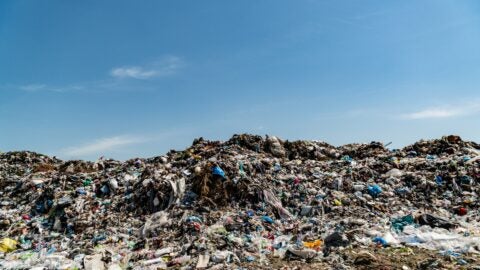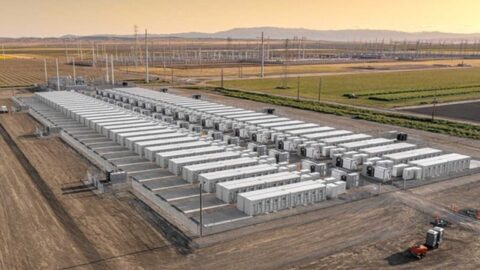New Study: California Climate Law Cuts Billions in Health, Pollution Costs
 California drivers don’t have much choice when it comes to what fuel they fill their cars with, or how dirty it is. As recently as five years ago, nearly 97 percent of the energy used for transportation in the Golden State came from gas and diesel – over half of which was made from imported oil.
California drivers don’t have much choice when it comes to what fuel they fill their cars with, or how dirty it is. As recently as five years ago, nearly 97 percent of the energy used for transportation in the Golden State came from gas and diesel – over half of which was made from imported oil.
This basic lack of consumer choice means that California drivers like myself are stuck with a high-priced product that is made from dirty crude and controlled by a few major multinational oil companies.
What’s more, our transportation system has a direct effect on our health – in addition to contributing to climate change and energy insecurity.
And it’s not a pretty picture.
A study just out from the Environmental Defense Fund and the American Lung Association, with modeling by Tetra Tech, finds that the negative impacts of California’s transportation system cost us a staggering $25 billion per year. It also shows that the benefits of policies aimed at supporting the use of cleaner fuels can significantly reduce such costs.
25 million drivers, worst air pollution in the U.S.
I’m probably similar to many other drivers around here. Last year I drove some 15,000 miles, paying about $2,400 for gas – a sizeable portion of my disposable income. This gas is always more expensive in the summer than in winter, and it won’t matter if I fill up my car at the Shell station on the corner or from Chevron at the freeway on-ramp.
My 15,000 miles of driving last year released about 5 tons of greenhouse gas pollution and other air contaminants. When combined with the pollution released from California’s other 25 million drivers, I have, unfortunately, helped give California the nation’s worst air pollution.
Not only is our state home to the top five most polluted cities in the United States, but countless Californians suffer from lung and heart problems, and even risk early death, from pollution-related health impacts cause by transportation.
California climate law a game changer
Lucky for us, things are changing. In 2006, California passed AB 32, a landmark law to fight climate change by cutting greenhouse gas pollution across the state – including the transportation system. The law includes a suite of innovative policies dedicated to supporting alternative fuels and vehicles that are cleaner and less expensive.
These regulations include the nation’s first-ever Low Carbon Fuel Standard and an economy wide cap-and-trade program that places a limit on carbon dioxide pollution and establishes opportunities for companies to develop solutions that cut transportation pollution.

Thanks to AB 32 and other policies, nearly 7 percent of California’s fuel now comes from alternatives. By 2020, that number is expected to grow to at least 11 percent and perhaps as much as 19 percent. These new fuels are made from cleaner sources, most made right here in the U.S., and many cost less than gas and diesel.
As they become more widely available, the vehicles that use them will also become more accessible because they will be cheaper, more widely available, and eventually become a staple in the used-car market.
Plus, many of the fuels that power these vehicles won’t fluctuate like gas and diesel, relieving some of the yo-yo prices seen every year.
Report: Billions in savings coming our way
According to our report, by 2020, and even more so by 2025, the benefits to drivers and communities across California from AB 32 are staggering:
With full implementation, the Low Carbon Fuel Standard and cap-and-trade regulations will result in cumulative benefits from avoided health costs, improved energy security, and reduced social costs of carbon valued at $10.4 billion by 2020 and $23.1 billion by 2025.
On the health side, by 2025, these policies will prevent:
- 600 heart attacks
- 880 premature deaths
- 38,000 asthma attacks
- nearly 75,000 lost work days
On the consumption side, by 2025, California’s the two programs will result in reduced consumption of 21.4 billion gallons of gasoline and 11.8 billion gallons of diesel fuel. That translates into $100 billion in reduced purchases of gas and diesel.
California drivers have needed help for years. Our analysis shows that these policies will deliver and help me and all the other drivers out there do better. We’ll save money, pollute less, and buy fuel made in the United States.
Who can argue with that?













